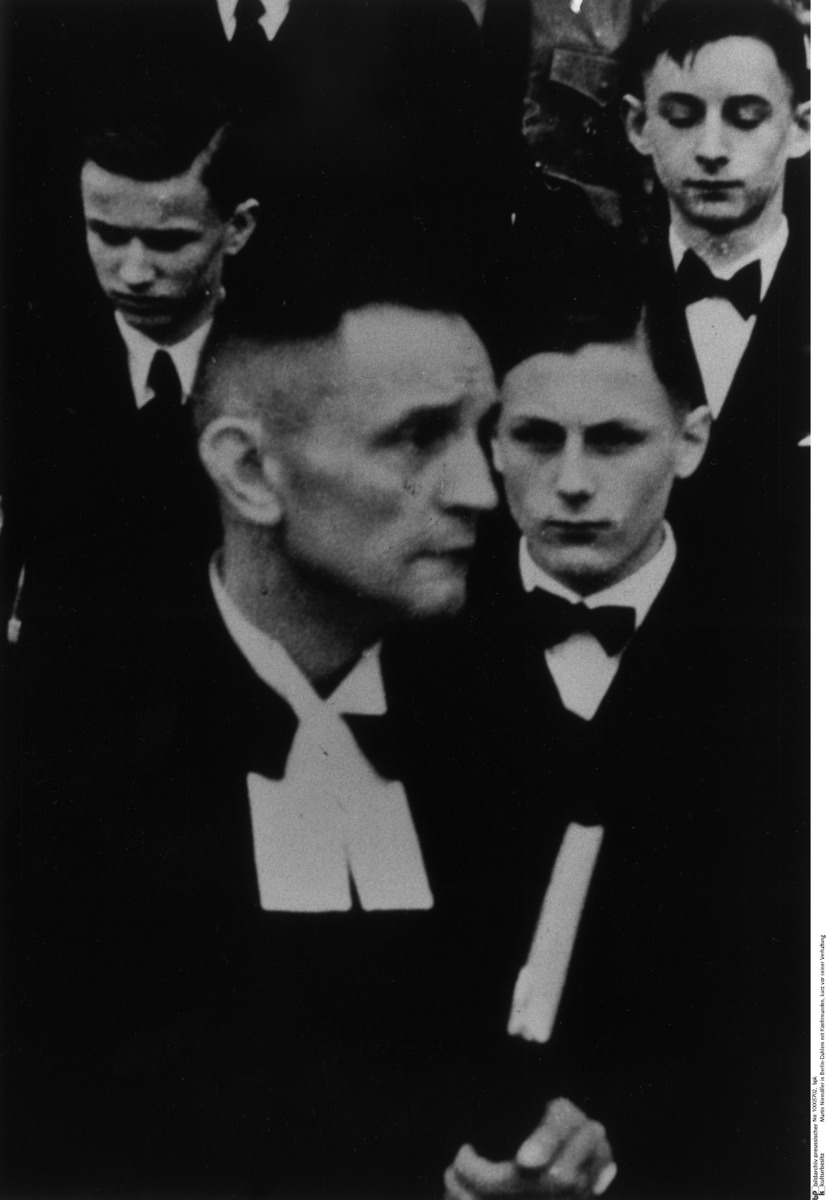Abstract
Protestant pastor Martin Niemöller (1892–1984) became a central
figure in the resistance against the National Socialist “coordination”
[Gleichschaltung] and ideological
infiltration of Germany’s Protestant Church. A staunch nationalist and
WWI veteran, Niemöller had been strongly opposed to the Weimar Republic
and had voted for the NSDAP up to the Nazi takeover. Shortly after
Hitler became chancellor, however, Niemöller turned against the regime.
When the “German Christians” attempted to introduce rules restricting
church offices to Aryans in 1933, he protested by founding the Pastors’
Emergency League. Niemöller was under Gestapo surveillance starting in
1934; he was deposed of his office that same year. He was reinstated a
few months later following protests by his church congregation. He
joined the “Confessing Church” [Bekennende
Kirche], which lead to his arrest in July 1937. At the time of his
sentencing, which occurred about a year later, his prison sentence was
considered served, but the Gestapo arrested him again and deported him
to the Sachsenhausen concentration camp, where he remained a prisoner
until the end of the war. In the postwar period, he co-authored the
Stuttgart Confession and remained politically active. This photograph
shows Niemöller with a group of candidates for confirmation from his
congregation in Berlin-Dahlem in the spring of 1937, a few months before
his arrest.
